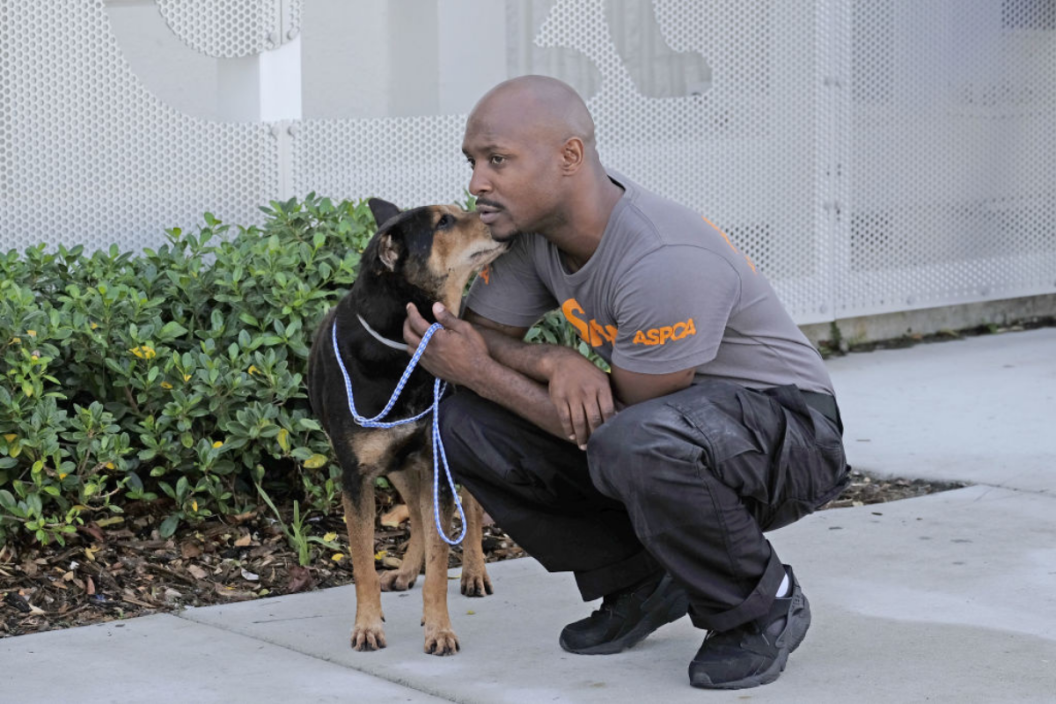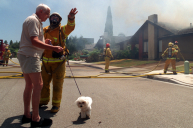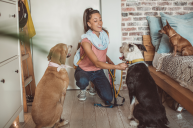Are you and your pets ready for hurricane season?
Hurricanes are terrifying for people, but they can also be hard on our pets. When disasters strike, many pets are displaced, put in temporary boarding facilities, and some can even become separated from their owners. Waiting out a storm in an unfamiliar location can also make your pet feel uneasy. However, when hurricane season is upon you, all you can do as a pet owner is be as prepared as possible, keeping you and your pets safe during a natural disaster.
Hurricane Preparedness For Your Pets
Preparedness is the name of the game when it comes to prepping for hurricanes. Winds and rains can hit at any time and force mandatory evacuations, so the best thing to do is put together an emergency preparedness kit and evacuation plan. Put together an emergency kit with the following items:
- Water bowls
- Can Opener
- A week supply of pet food
- First aid kit
- Pet carrier or kennel
- Medical records
- Id tags
- Vaccination records
- Cat litter/ litter box
- Photo of your pets
- Paper Towels, trash bags, wipes, and other items for clean-up
- Medications like flea, tick, or heartworm
Check to see if your current phone number is listed on your pet's microchip. If your furry friend does not have a microchip, consider getting them one so you can find them if you get separated. Many animals will end up at local animal shelters if found and will get returned.
Make sure you keep your pet emergency kit in a safe place where you can grab it quickly. You may also want to keep your pet's week's worth of food in a waterproof container in case it gets wet. FEMA suggests you evacuate early if you have larger animals. They also say that you should practice your evacuation route, so you know a couple of different ways to get you and your pets to an evacuation shelter.
In the event that you cannot get out of your home, FEMA says pet owners may have to choose between turning large pets loose or putting them inside a barn.
Places To Stay Safe
https://www.instagram.com/p/CTFuUHgstDN/
RELATED: Everything Your Pet's Disaster Preparedness Kit Should Include (Just In Case)
Keep a list of places you and your pet can go outside the evacuation zone. Look for pet-friendly hotels and motels in your area, or make a plan to stay with family members. Often, many emergency shelters are not pet-friendly, so you may need to have a couple of different plans. Pet owners can reach out to their local emergency management services to find pet-friendly shelters and additional disaster preparedness resources.
If you cannot get out of your home and need to shelter in place, the FDA has a list of things you can do to keep you and your pets safe at home.
The FDA suggests you do the following:
- Watch or listen to weather updates
- Remain indoors, at a low level away from windows
- Keep emergency kits with you in case you do need to leave
- If you are at risk of flooding, turn off your electricity and use a flashlight
- Do not be tempted to go outside and check out the storm
- Keep your pets in their carriers or crates
- If you are actively getting hit by the storm, get in a tub and pull a mattress over you to protect you from debris
Always bring your pets with you when you do evacuate. Assistance dogs are allowed in most general shelters and Red Cross Shelters as long as they are certified service animals.
Have you ever had to evacuate your pets in a hurricane? Let us know on our Wide Open Pets Facebook page.




